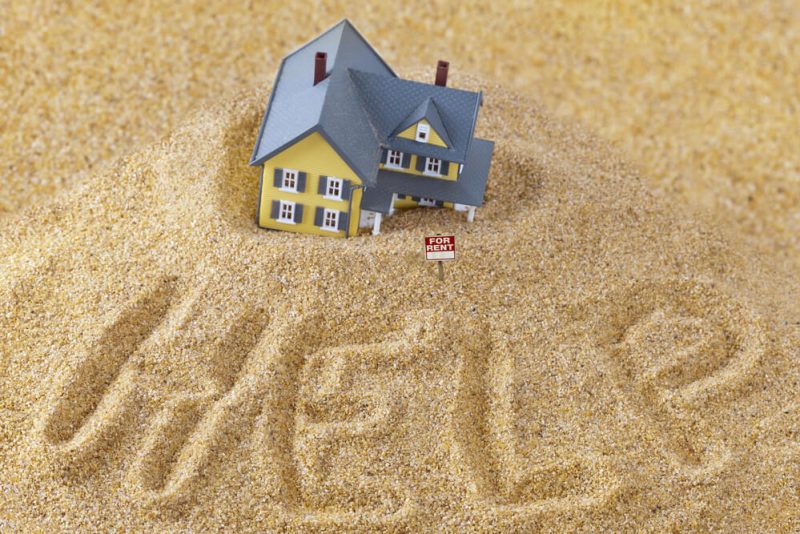Blog
My House Is Leaning – Or Am I Just in Seattle? Home Insurance and Your Foundation

You ever step into your kitchen in the morning and think, “Huh, I swear that countertop wasn’t slanted yesterday”? Welcome to Seattle, where the coffee is strong, the rain is stronger, and your house might be on a slow-motion slide into Puget Sound. Let’s talk about your home’s foundation, Seattle’s wobbly ground, and how home insurance plays into it all. After all, getting affordable Washington home insurance quotes may make the difference between a slanted home and an upside-down wallet!
Shaky Grounds – Why Seattle Homes Are Prone to Foundation Issues
First off, no, you’re not imagining it. Seattle has some of the most geologically dramatic dirt around. The ground here is a mix of glacial leftovers, clay, silt, and something engineers lovingly call expansive soil… basically, dirt that throws tantrums when it gets wet or dry.
Expansive soil swells when it rains (which, spoiler alert, happens often), and shrinks when it dries out during our one week of “summer.” This swell-shrink-swell cycle can put serious pressure on your foundation, like a slow-motion tug-of-war match beneath your house. Speaking of which, if there’s “water, water, everywhere,” you might also want to investigate flood zones before you buy a house in Washington.
Add in some shifting slopes, underground water pockets, and the occasional earthquake tremble, and you’ve got the perfect recipe for foundation problems.
Foundation Problems 101 – Common Causes and Warning Signs
So, how do you know if your house is trying to slowly escape the neighborhood? Maybe you’re spotting cracks in the walls or ceilings. Or maybe your doors and windows suddenly don’t close without a little shoulder check. Floors might start to feel slanted, or you could be seeing splits in the actual concrete down near the base of the house. These are all signs your foundation might be shifting, and while they might seem minor at first, they can turn into major problems faster than a Seattle driver in a surprise snowstorm.
It might also make sense to take a closer look at the inspection report you received when you first purchased your home. Maybe there were initial signs of foundation problems, or perhaps this is a brand-new issue. Either way, it’s helpful to understand exactly when the problem started.
Is It Covered? What Home Insurance Typically Covers
Here’s where things get spicy. You’d think foundation damage would be covered by your home insurance, right? It’s your house’s literal backbone! Well … it depends. You might even be asking yourself about the optimal coverage: “How much home insurance do I need in Washington State?”
Most standard home insurance policies do cover foundation damage if it’s caused by something sudden and dramatic — like a fire, a burst pipe, or an explosion (which we hope you never experience, unless you’re in an action movie). But if the damage is from slow, natural causes like settling or soil movement? Not usually covered. That means if your house is playing the “leaning tower of Seattle” game because of shifting soil, you’re probably out of luck under a basic plan.

When Mother Nature Is to Blame – Earthquake and Flood Coverage
Remember the idea that Seattle’s ground likes to move around? Earthquakes are a very real thing here. And no, your standard policy doesn’t cover that either, in case you were wondering if you need earthquake insurance in the Pacific Northwest. If you’re anywhere near a fault line (hint: most of Seattle is), you might want to add earthquake insurance.
Also, with so much rainfall and changing terrain, flooding can sneak into your basement. Again, basic home insurance doesn’t usually touch this. If you’re near a flood zone or you’ve noticed more water than usual lately, it’s time to look at flood insurance options.
Cracks in the Policy – Common Exclusions for Foundation Damage
Time to break down what isn’t covered — because this is where folks get caught off guard. Most policies exclude normal house settling or wear and tear. They don’t typically cover damage from expansive soil or poor drainage, either. If your house was already sagging a bit and you’ve ignored it for years, don’t expect the policy to swoop in and save you. Also, as mentioned, earthquakes and floods are off the table unless you’ve added them on. So yeah, your policy might not help if your foundation slowly gives out because Seattle’s soggy soil got a little too moody.
Special Coverage Options – When You Need More Than Standard Insurance
Good news: You’re not totally doomed. If your house is older, built on a slope, or you’ve noticed some shifting, talk to your insurance provider about additional coverage options. You might be able to add a rider for certain types of soil movement. You can bundle in earthquake and flood protection. Some policies even include water backup or ground movement clauses. It’s worth asking the question — especially if your house is leaning harder than a guy trying to overhear a juicy conversation.
And yes, it might cost a little more upfront. But compared to the cost of foundation repair (we’re talking tens of thousands), it’s not a bad deal.
Whether It’s Your House or Seattle Sliding – Vern Fonk’s Got You Covered
Look, foundation problems can feel overwhelming—like, “why does the floor feel like a skateboard ramp” overwhelming. But with the right coverage and a little know-how, you can sleep easier knowing your house isn’t going to slowly moonwalk off the block without you. A solid insurance policy can also help you avoid the potential financial issues that can pop up with a situation like this.
Vern Fonk’s been helping Washington homeowners with weird, wet, and wobbly issues for years. Whether you live in a 1920s bungalow or a brand-new build that’s already feeling funny, we’ve got options. So go ahead, get a quote online, give us a call at (800) 455-8276, or come see us in person at one of our local neighborhood offices, and let us help you keep your house on solid ground. Or, at the very least, less bouncy.


